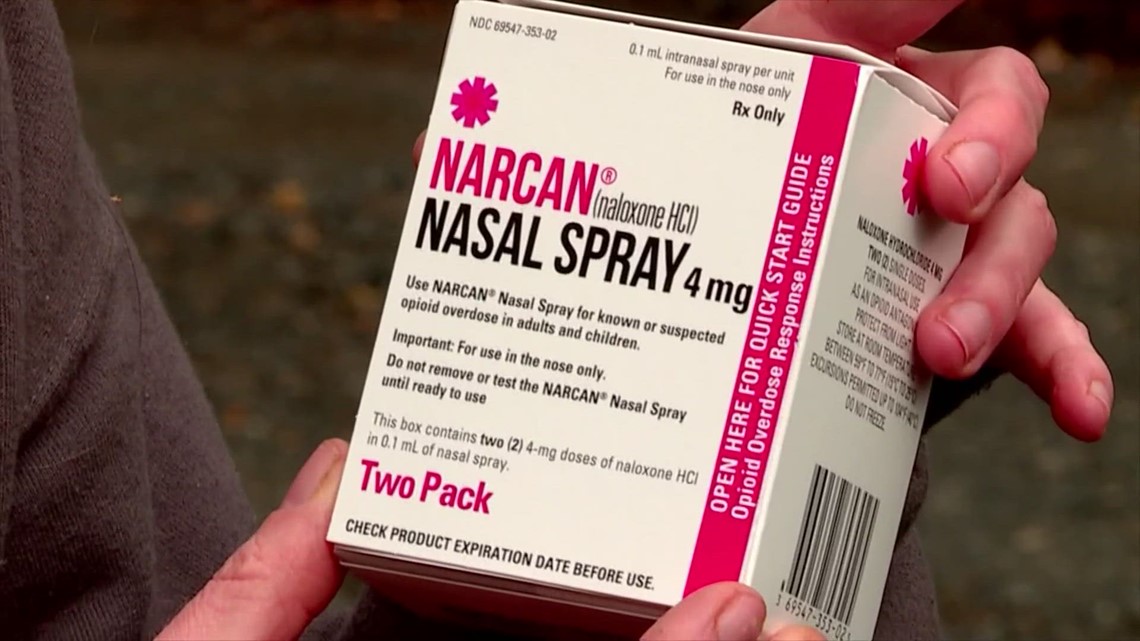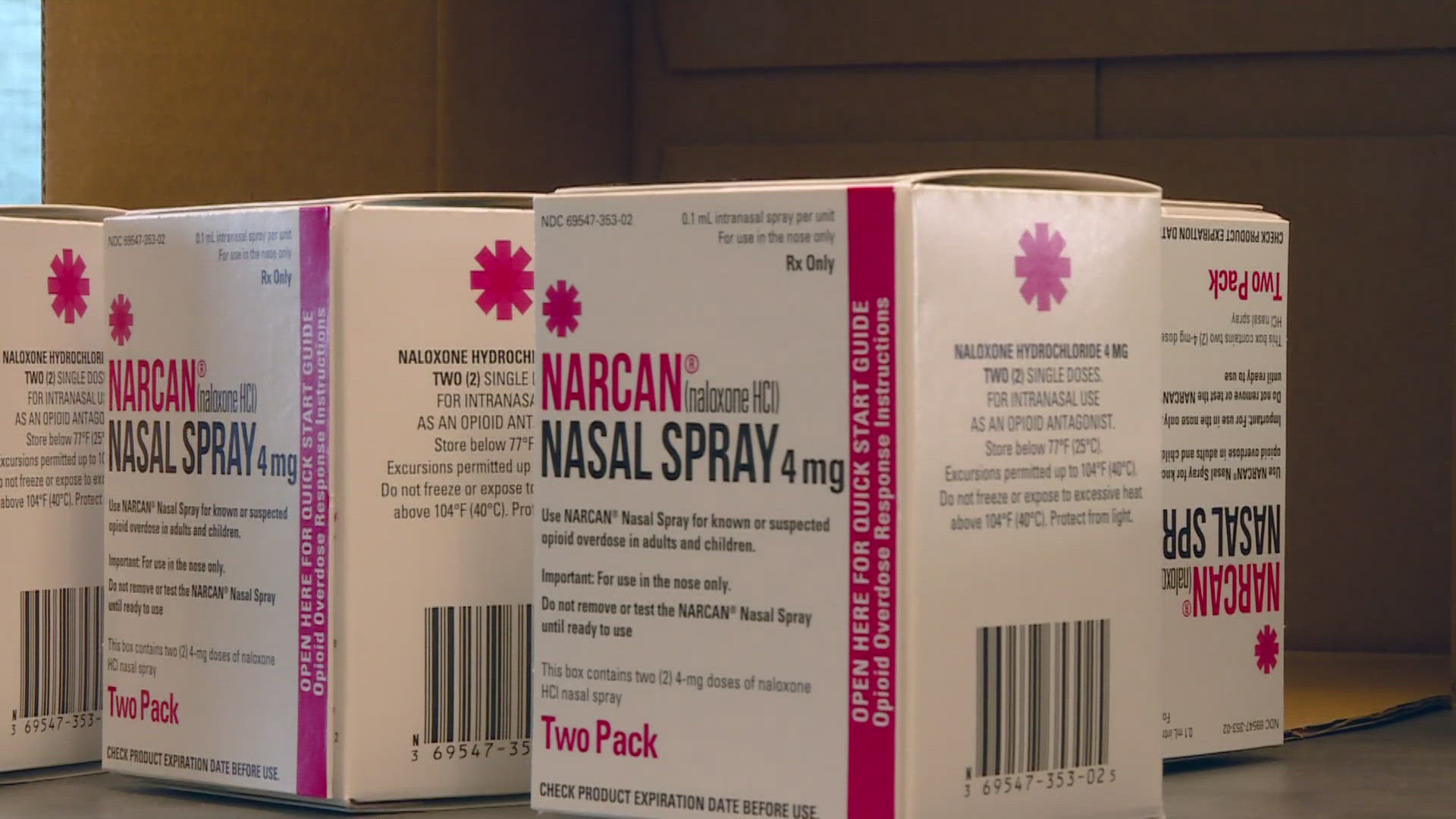DENVER — Colorado's program that gives out hundreds of thousands of doses of a lifesaving drug is running out of money. It's forcing the state to prioritize who gets naloxone and who doesn't.
During the 2022 legislative session, the General Assembly allocated close to $20 million in one-time federal funding to the Naloxone Bulk Purchase Fund to increase the availability of the life-saving drug.
Since 2022, the Bulk Fund has spent $12.9 million of the $19.7 million allocated to the program. Friday, Colorado's Department of Public Health and Environment (CDPHE) said it has $6.7 million left to spend until the end of 2026.
Due to limited resources, CDPHE started prioritizing who received the free doses on May 31.


CDPHE said this prioritization plan seeks to make sure people who are most likely to experience or witness an overdose have access to naloxone.
The Bulk Fund doesn't have an annual appropriation, and that makes advocates worried as federal funding becomes limited.
"This is the best tool in our tool kit to preventing overdose deaths in our community," Lisa Raville, Executive Director of the Harm Reduction Action Center in Denver, said. "If we don’t have access to that, we are going to continue to have people dying and dying publicly."
Raville receives free doses from the Bulk Fund. She understands why the state is now prioritizing doses but hopes the state can figure out where to get more money soon.
"We cannot afford in the worst overdose crisis and worst prohibition crisis ever to lose access to naloxone and Narcan in the state of Colorado," she said.
A nonprofit, The Naloxone Project, said it requested 6,000 doses this past spring for its hospital-based programs and ended up getting only 1,200 doses filled by CDPHE. The Naloxone Project works with hospitals to give the medication to patients before they leave the medical facility.
The Naloxone Project said CDPHE referenced previous donations to their organization and their limited capacity as the reasons they couldn't fill the entire request.
"Organizations will need to go elsewhere to find it or reduce programs or not grow programs," Rachael Duncan, Associate Director of The Naloxone Project, said.
The nonprofit said they are fundraising to purchase doses and writing grants since their supply has gone down.
"We haven’t heard a lot about what the plan is once this funding has been significantly decreased," Duncan said.
Some advocates suggest that Colorado's Attorney General's Office should allocate some of the National Opioid Settlement to the Bulk Fund.
"Naloxone is a critical medication that reverses an overdose, and it saves lives," Lawrence Pacheco, spokesperson for AG Phil Weiser, said. "The attorney general is reviewing options to ensure that this lifesaving medication can continue to be part of the state’s effort to abate the opioid crisis."

